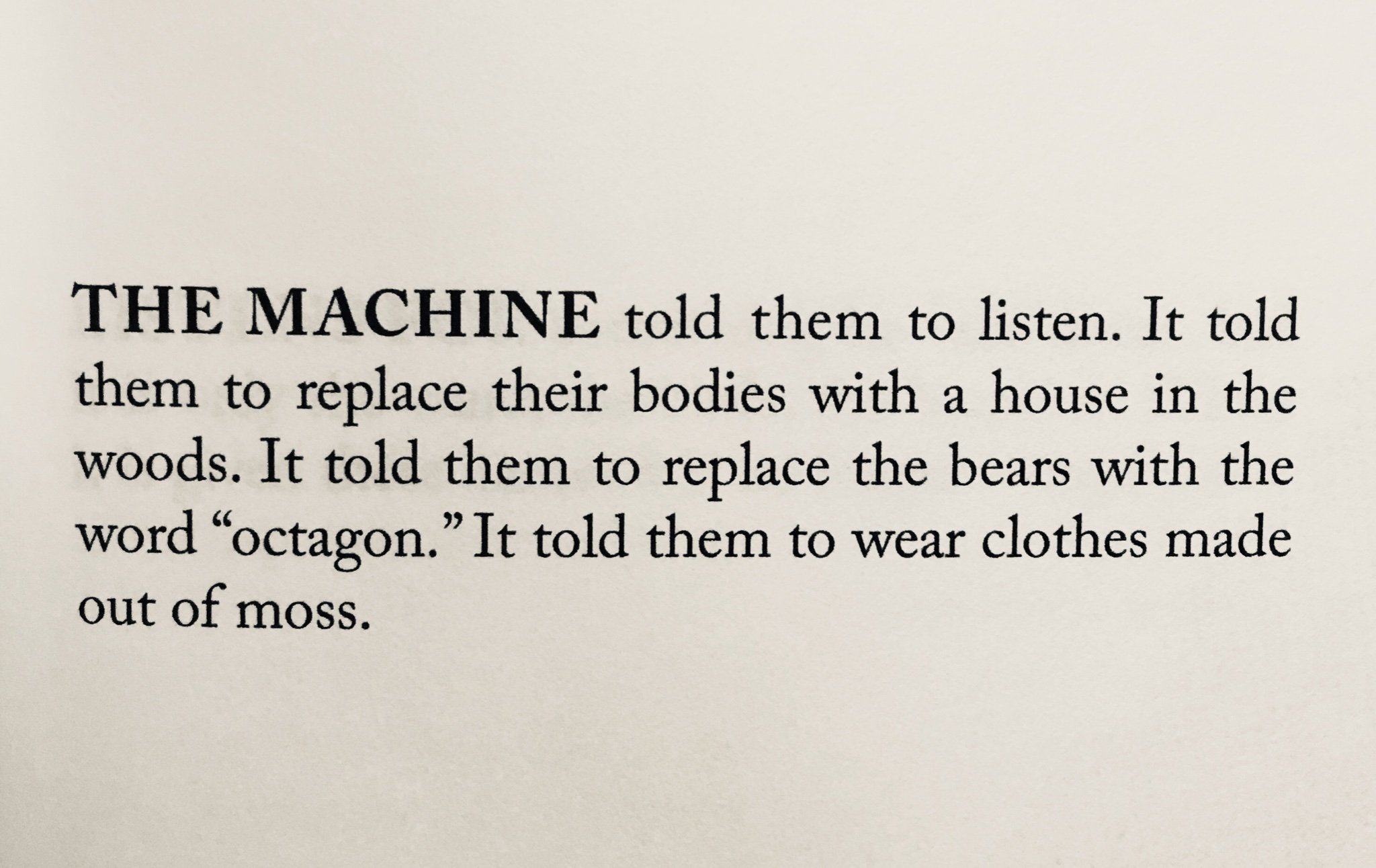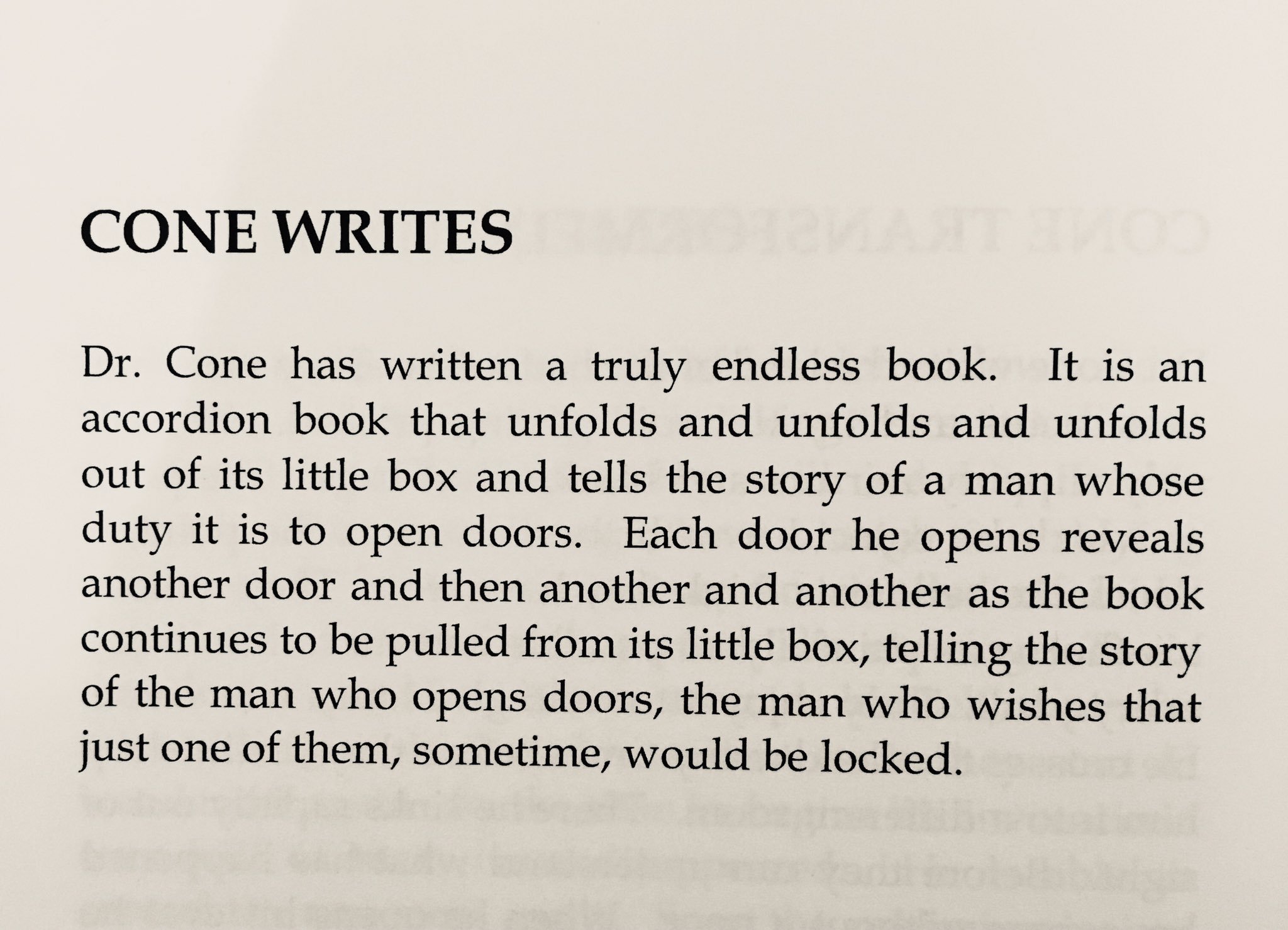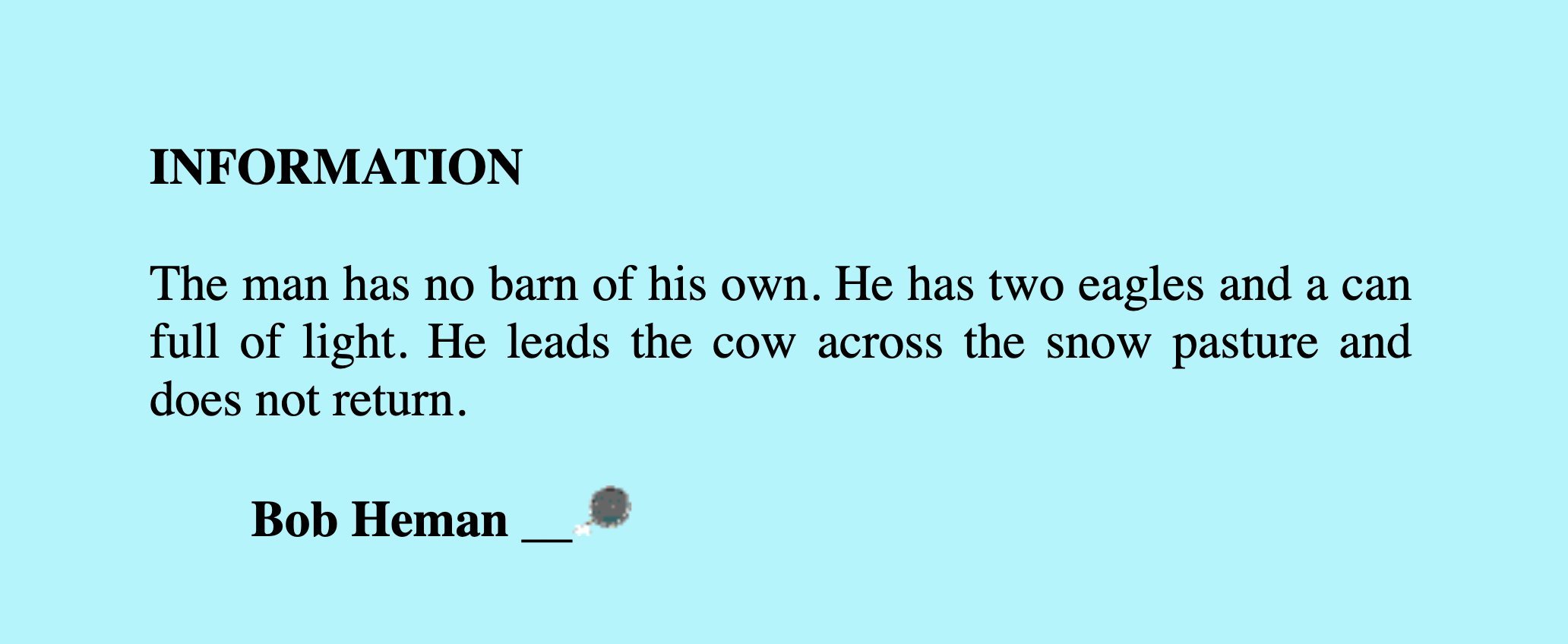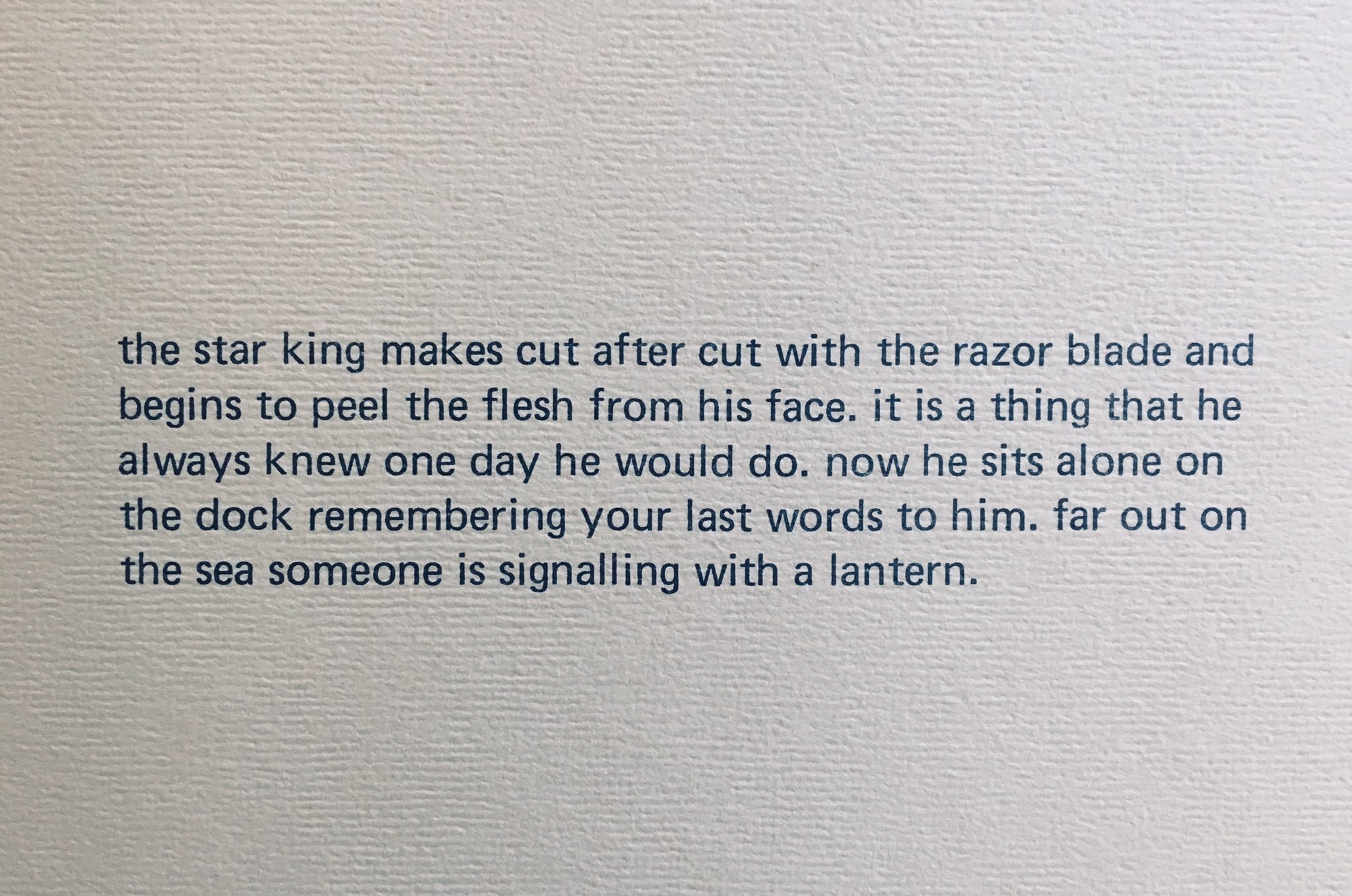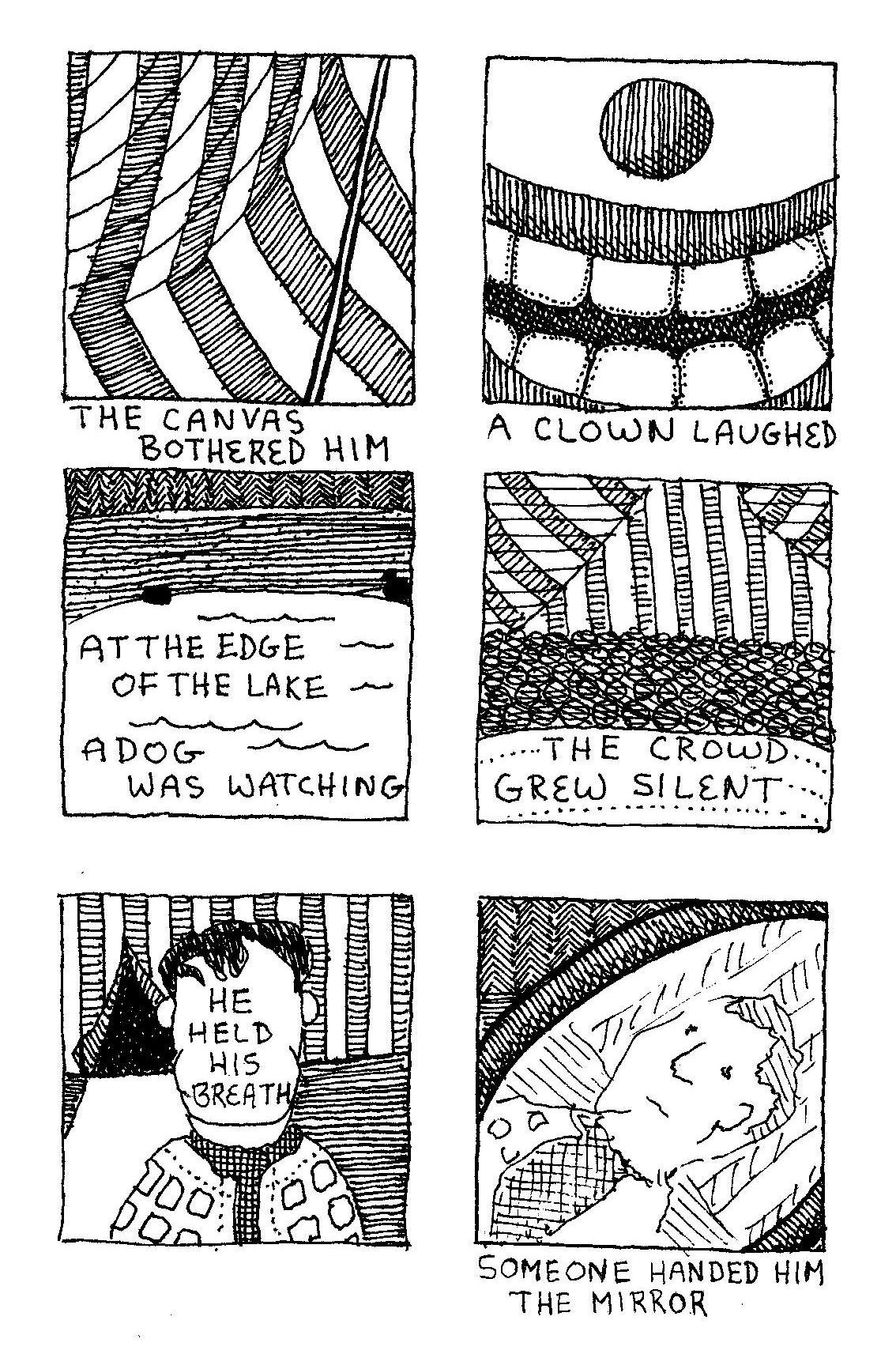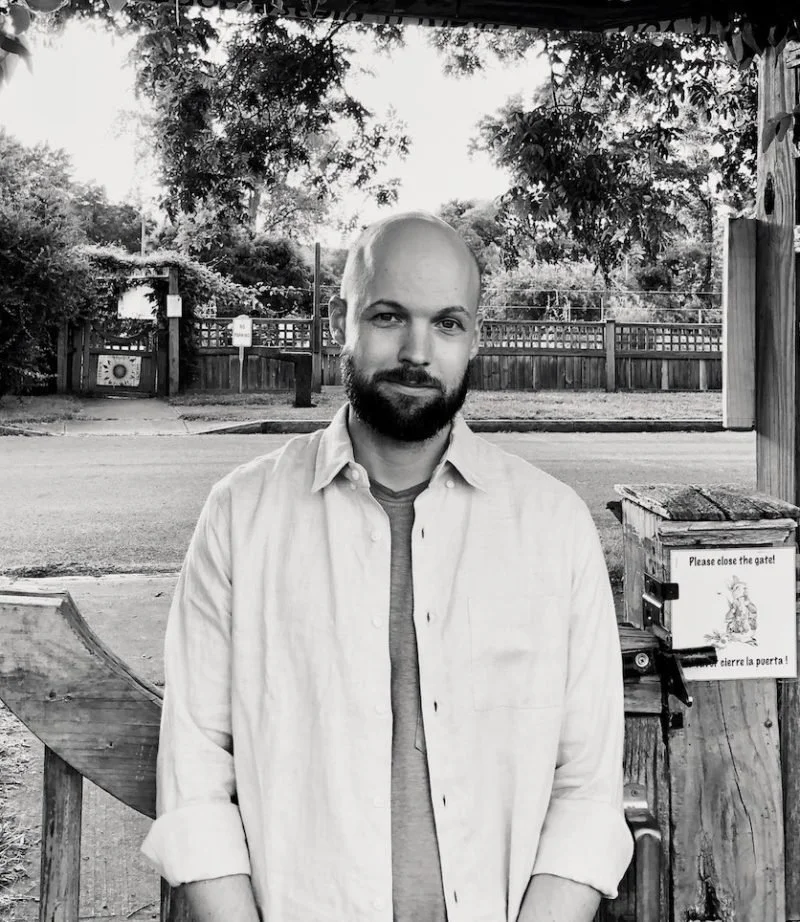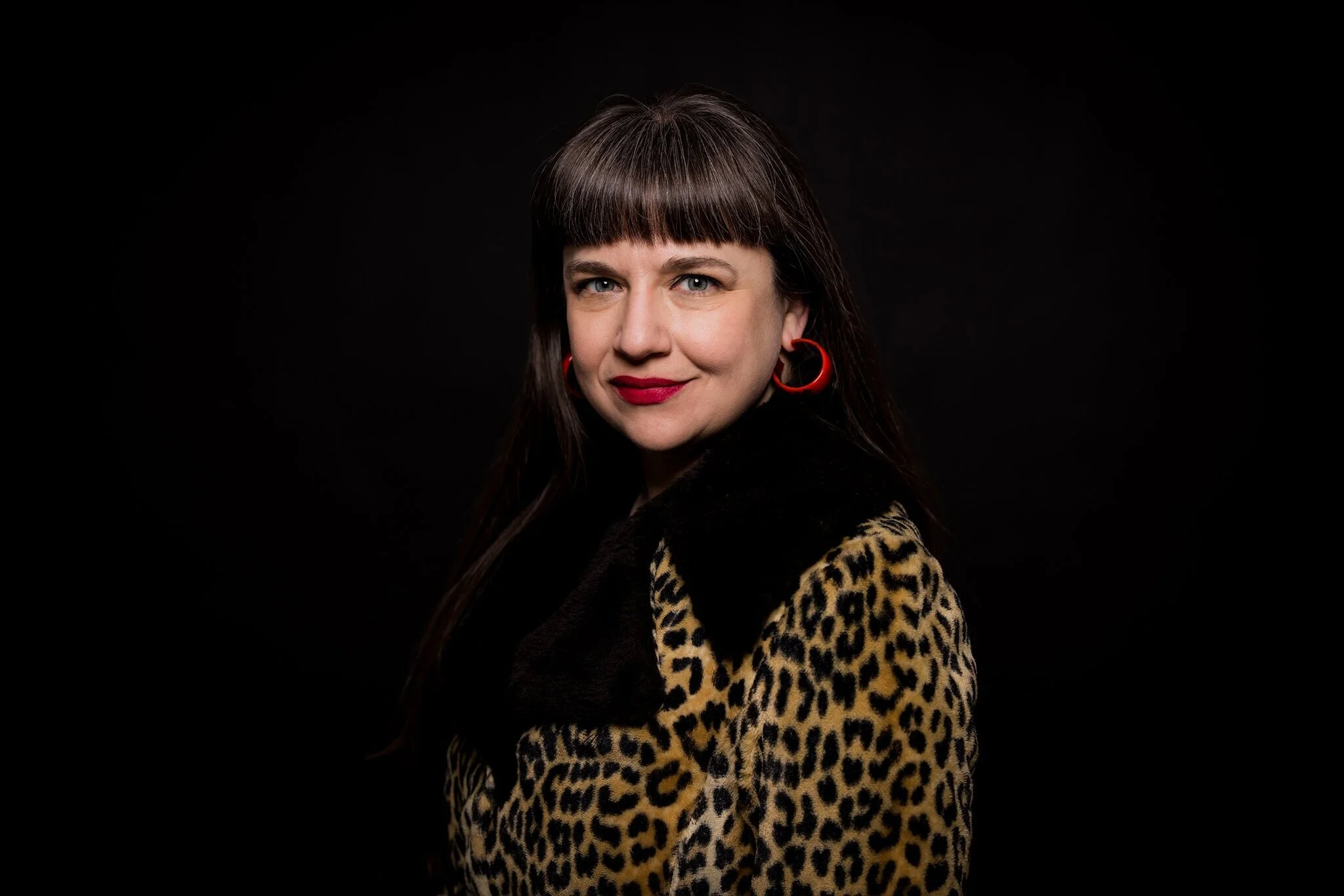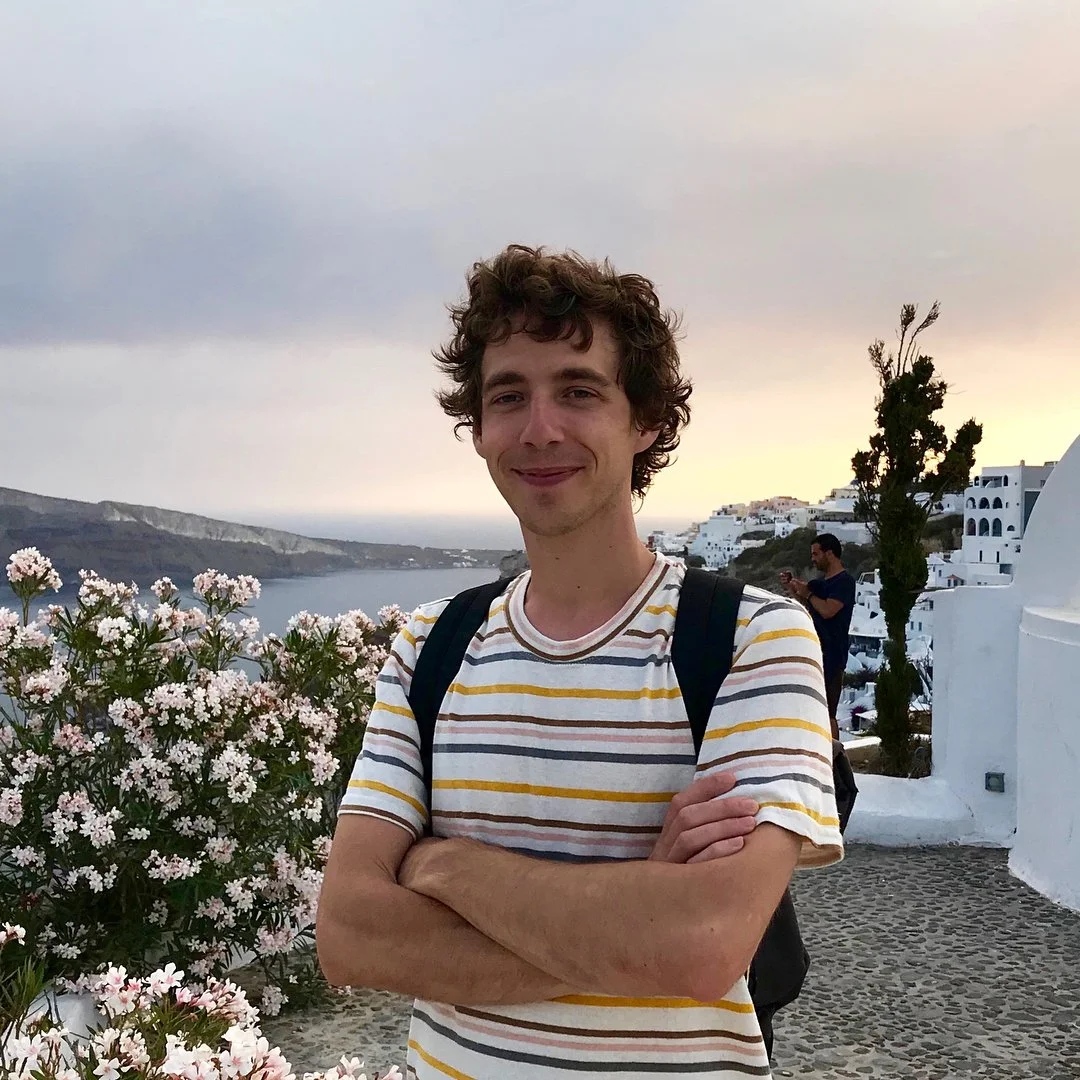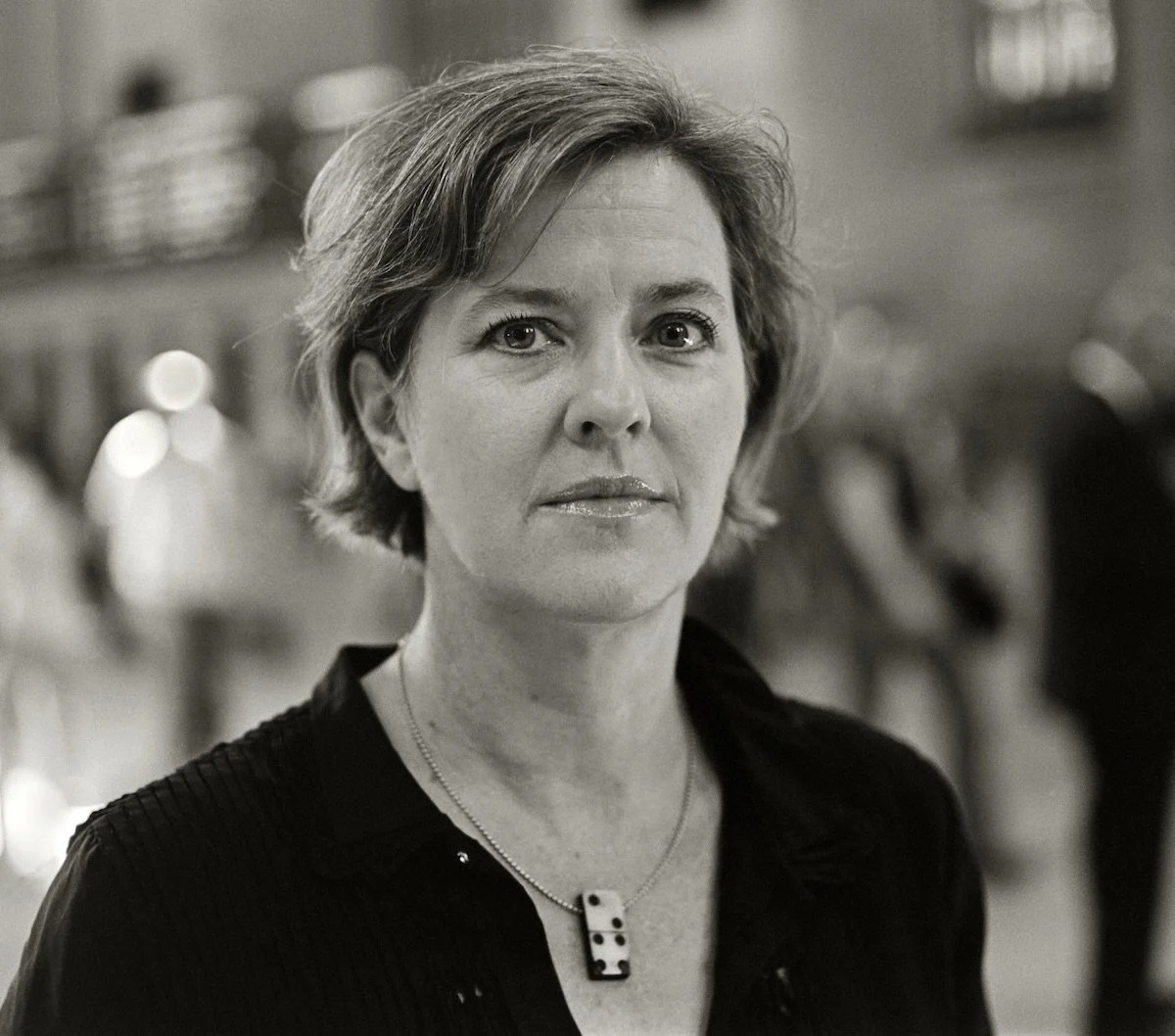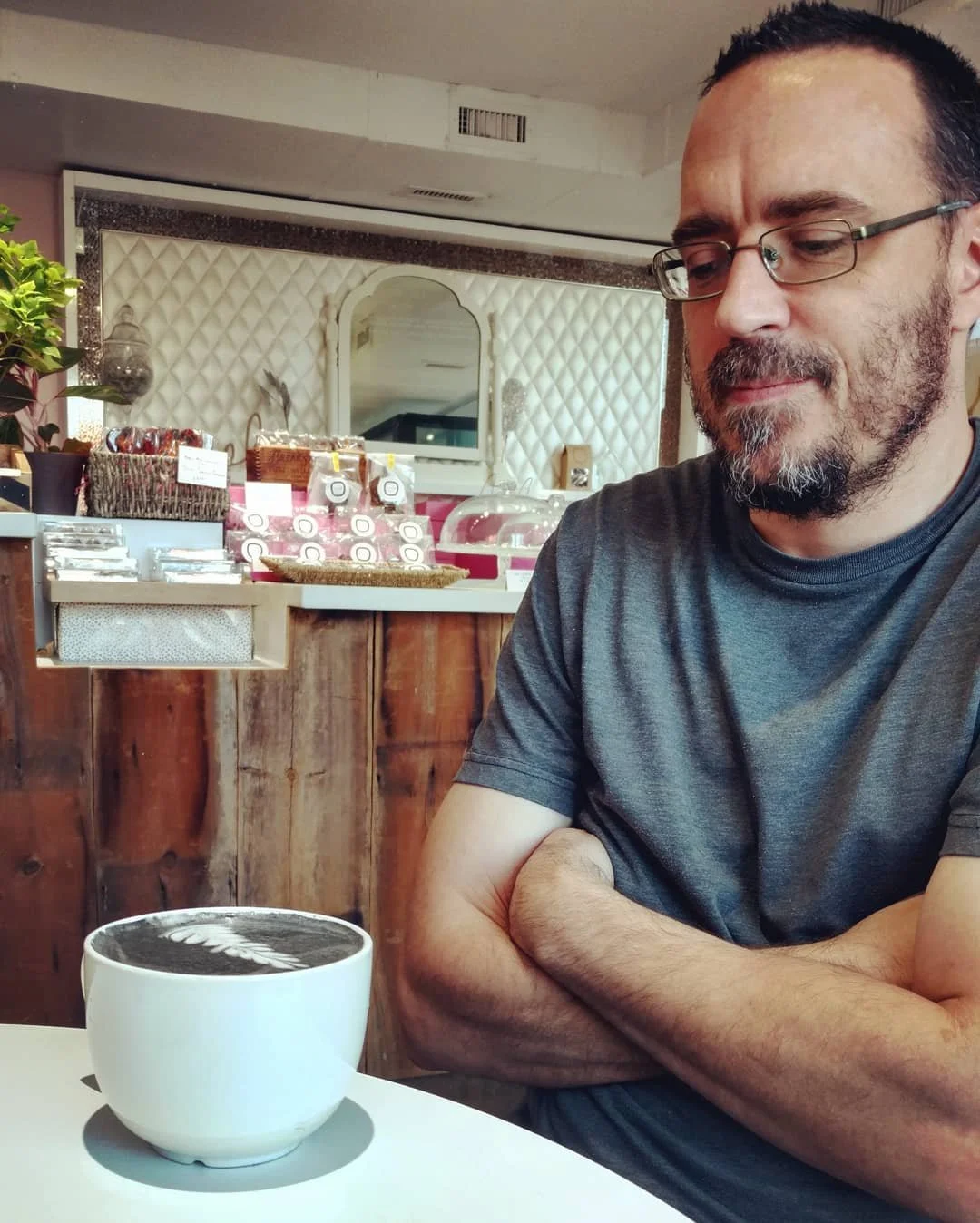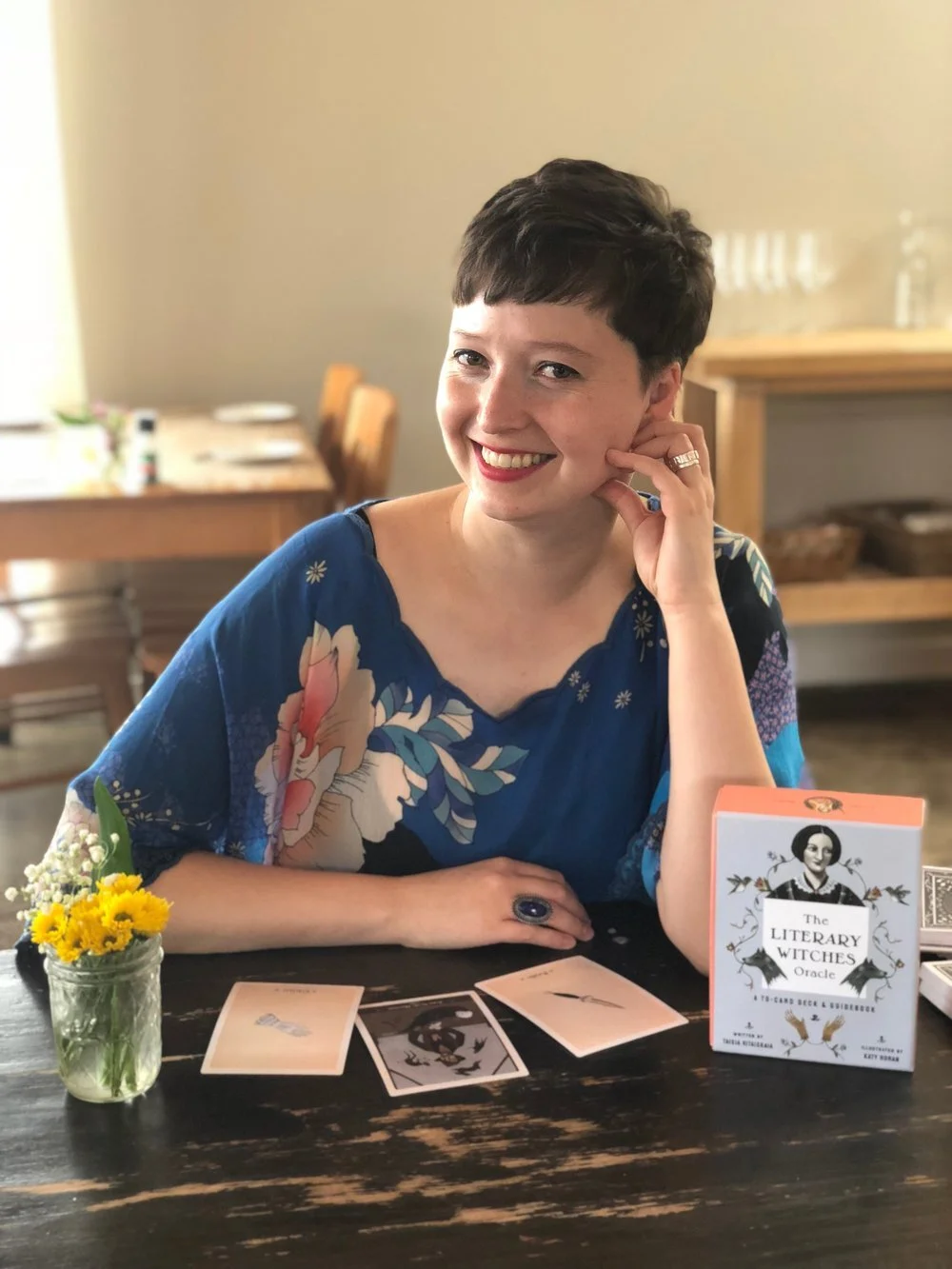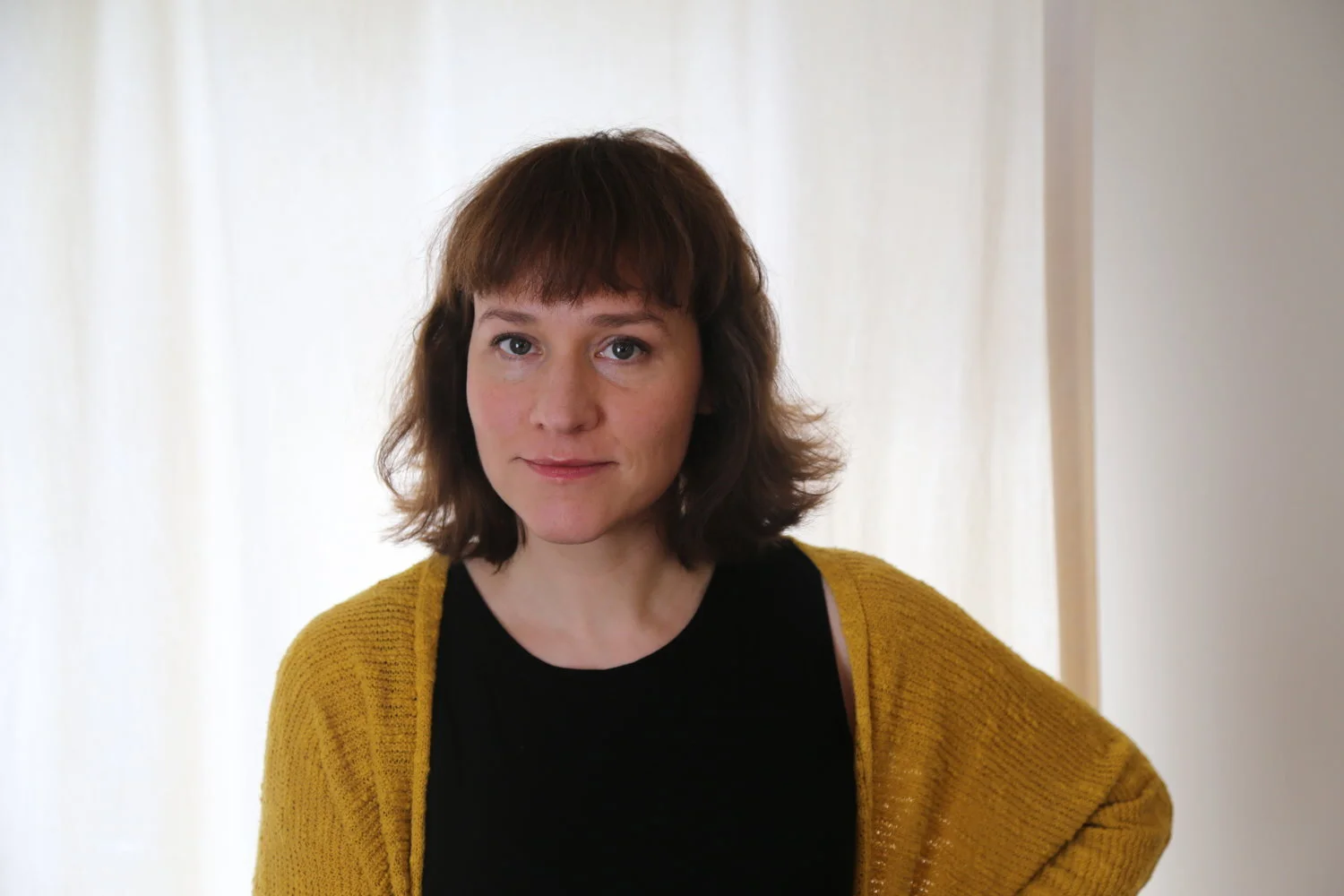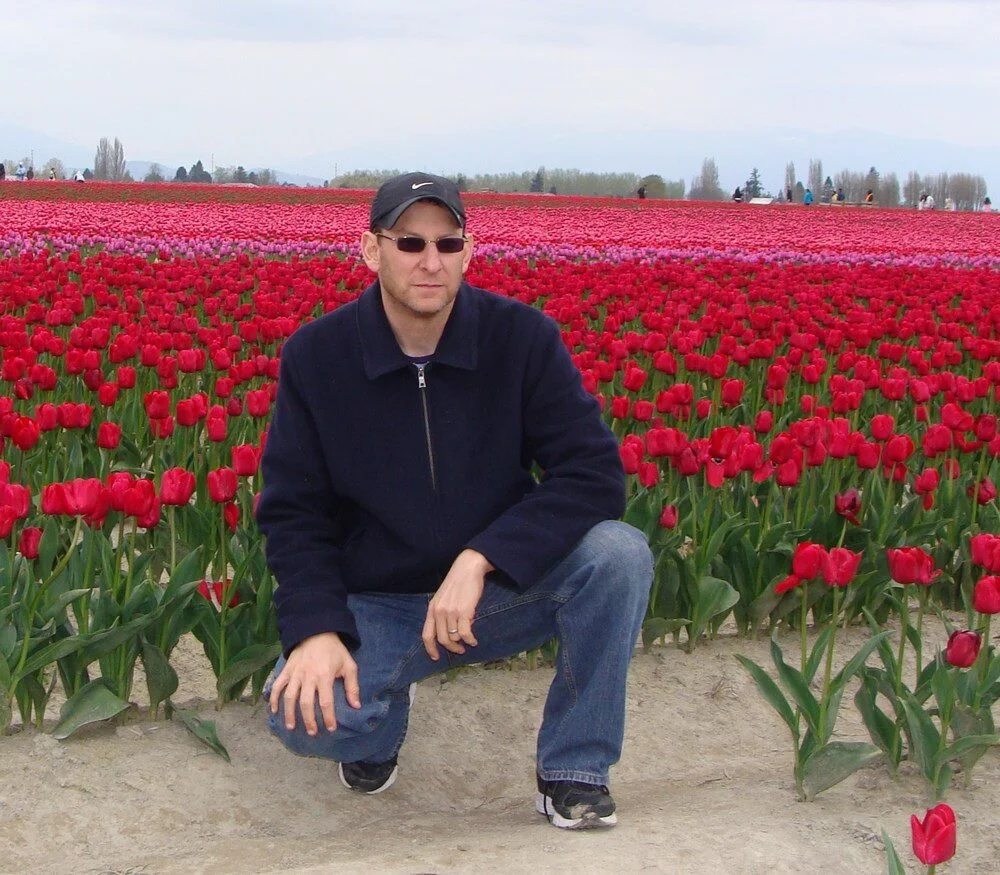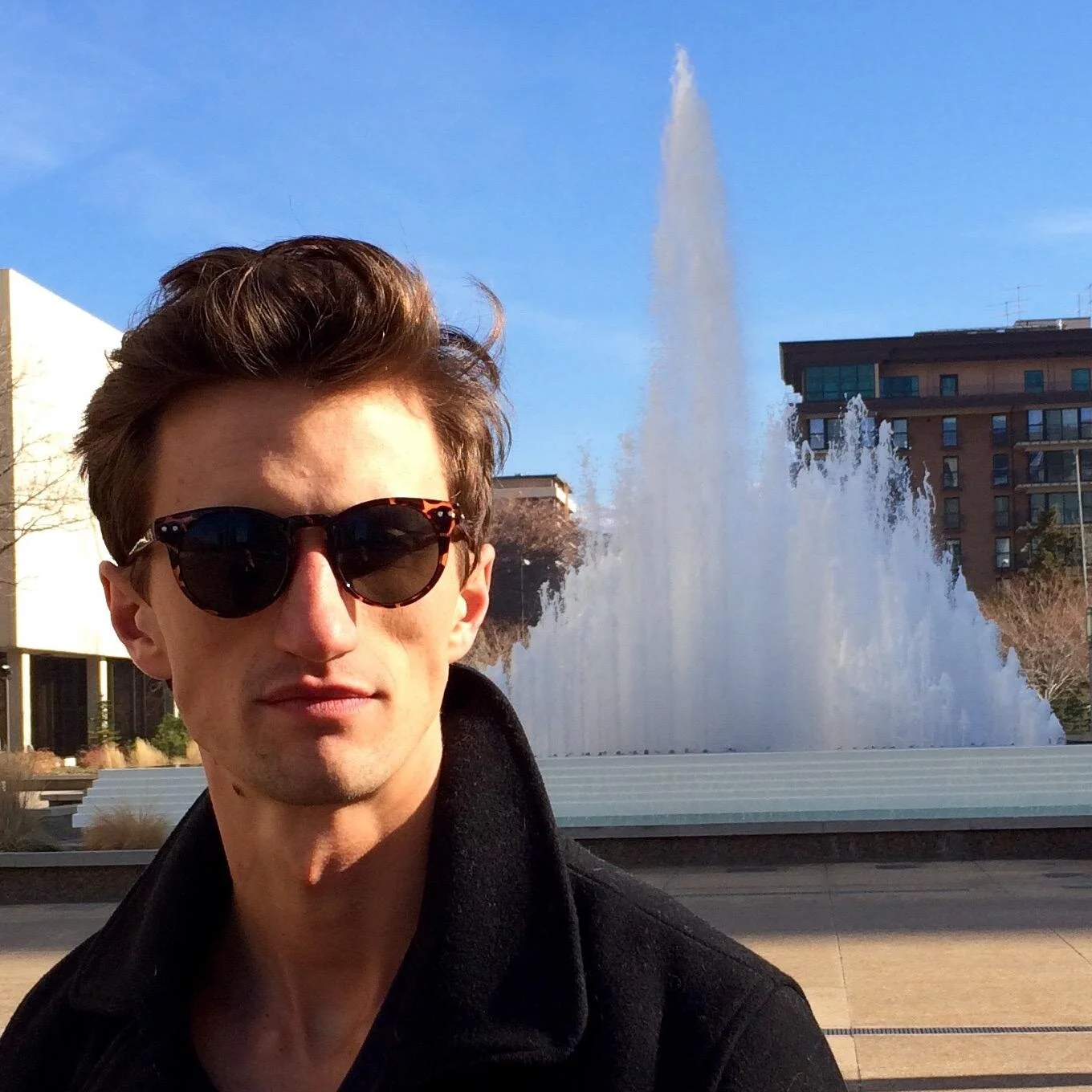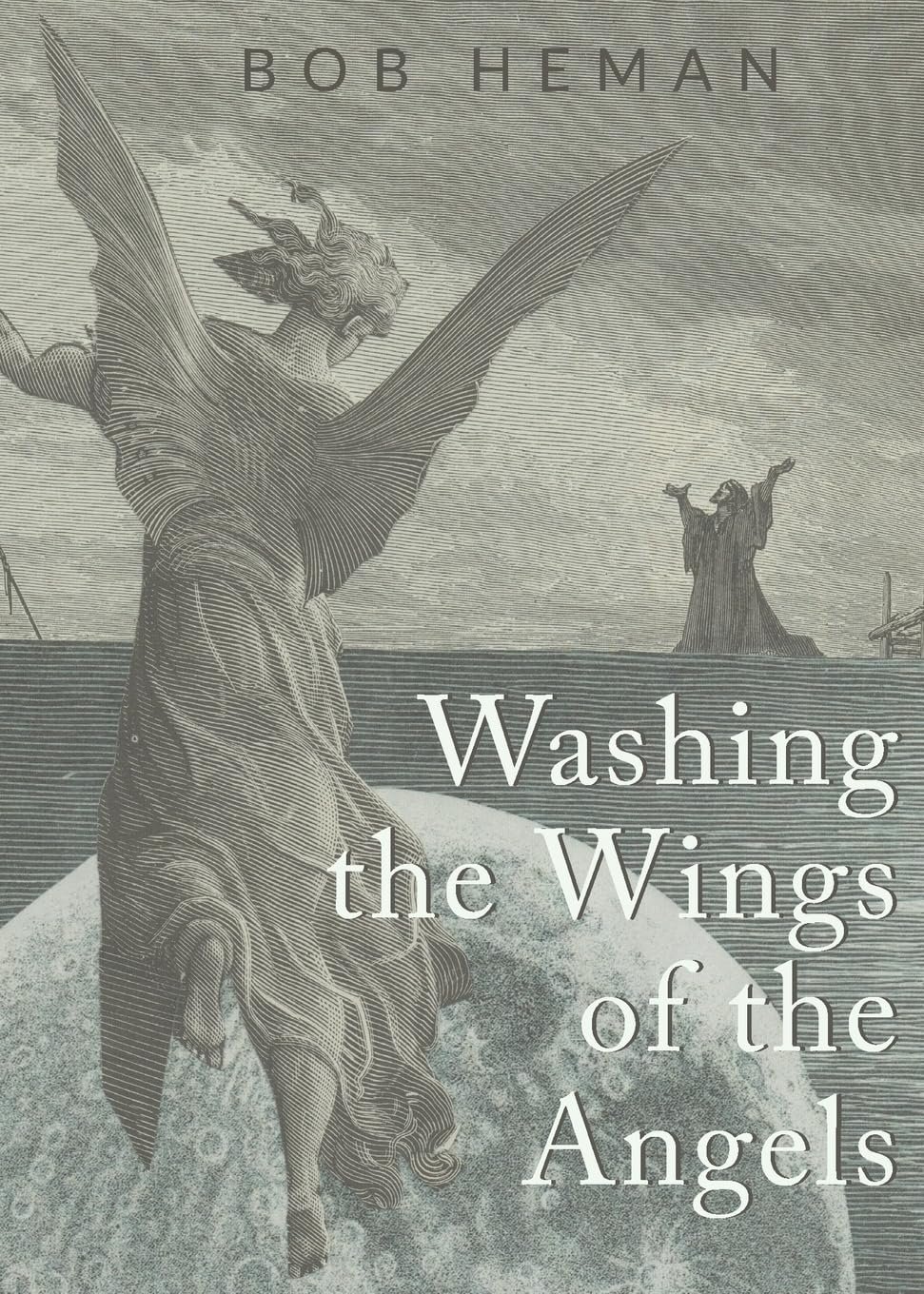
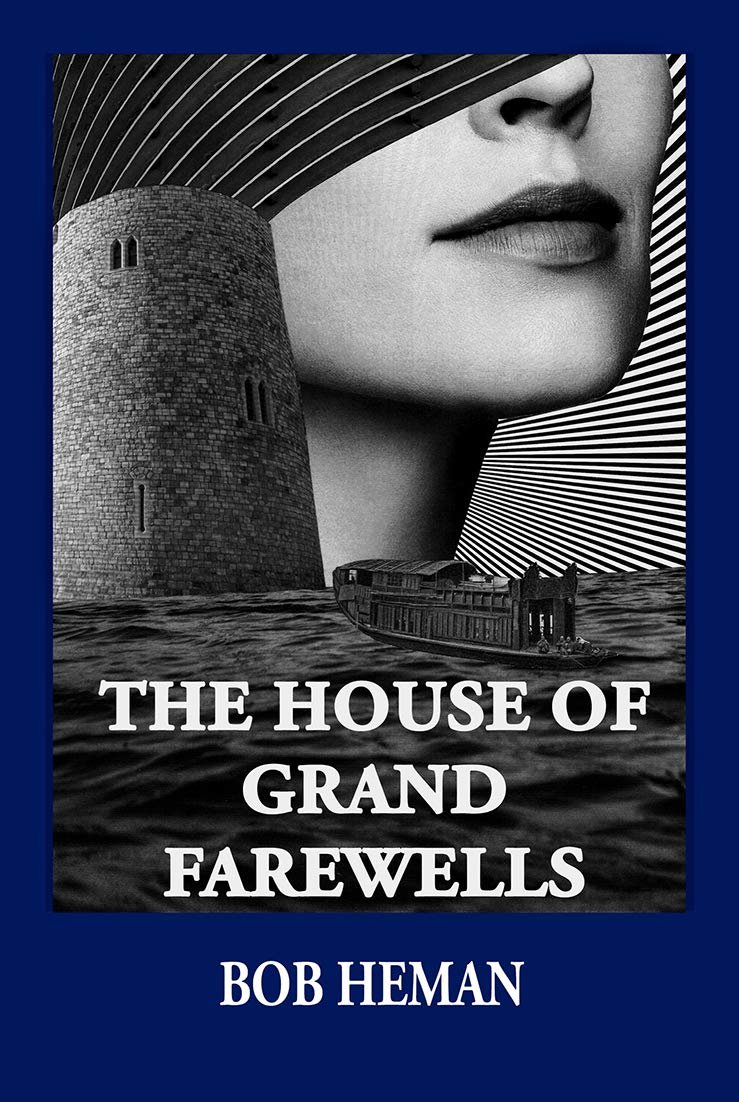
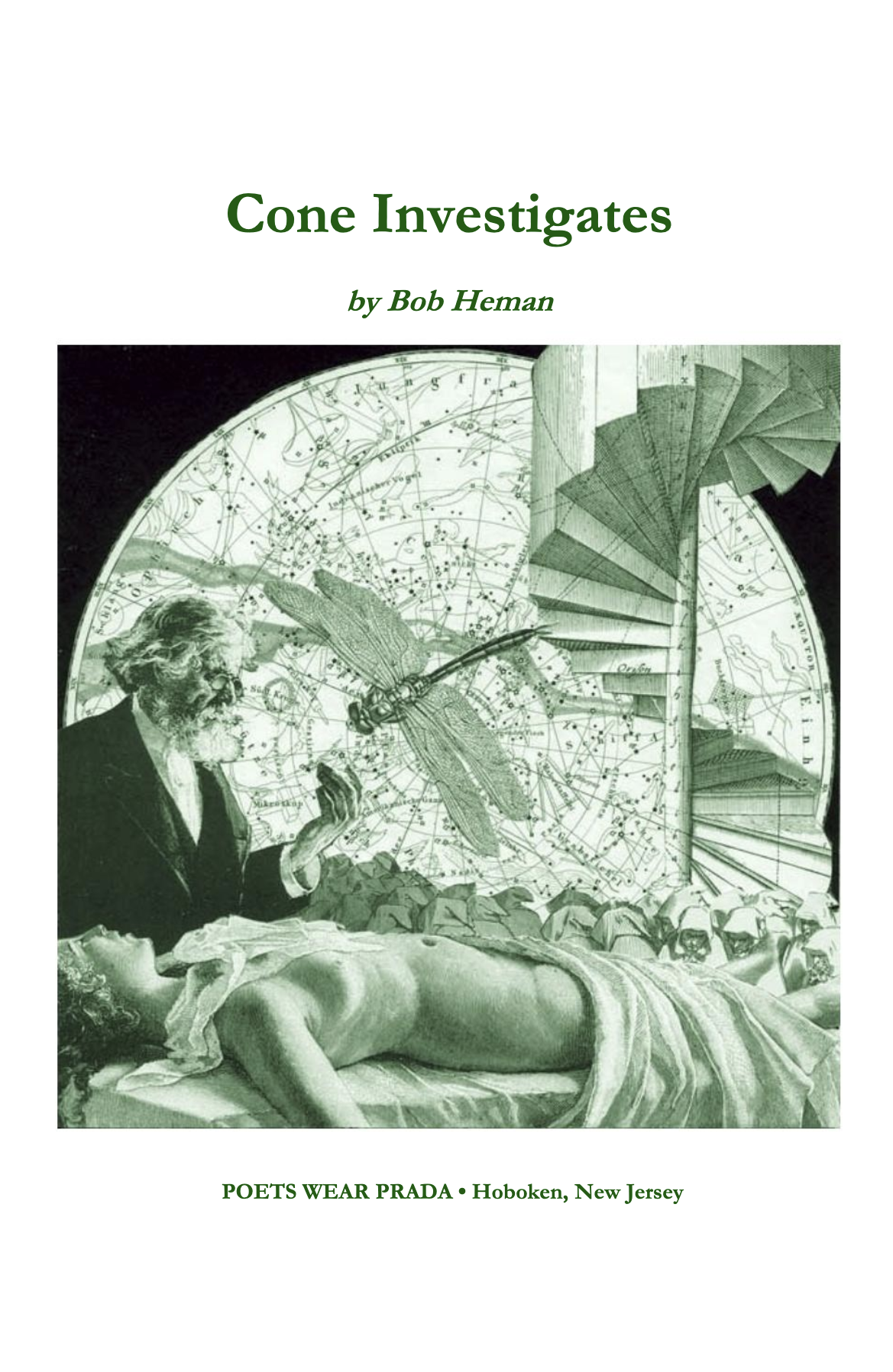
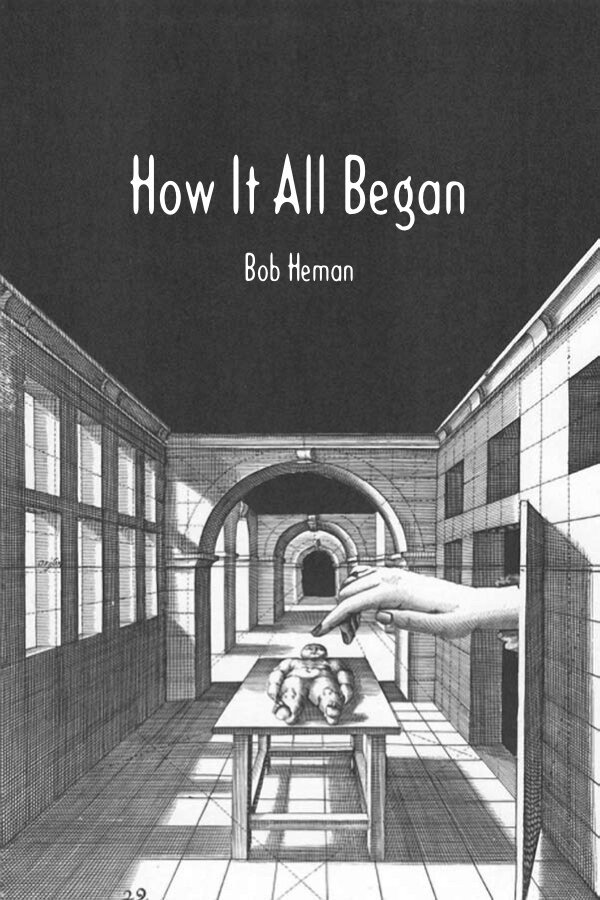
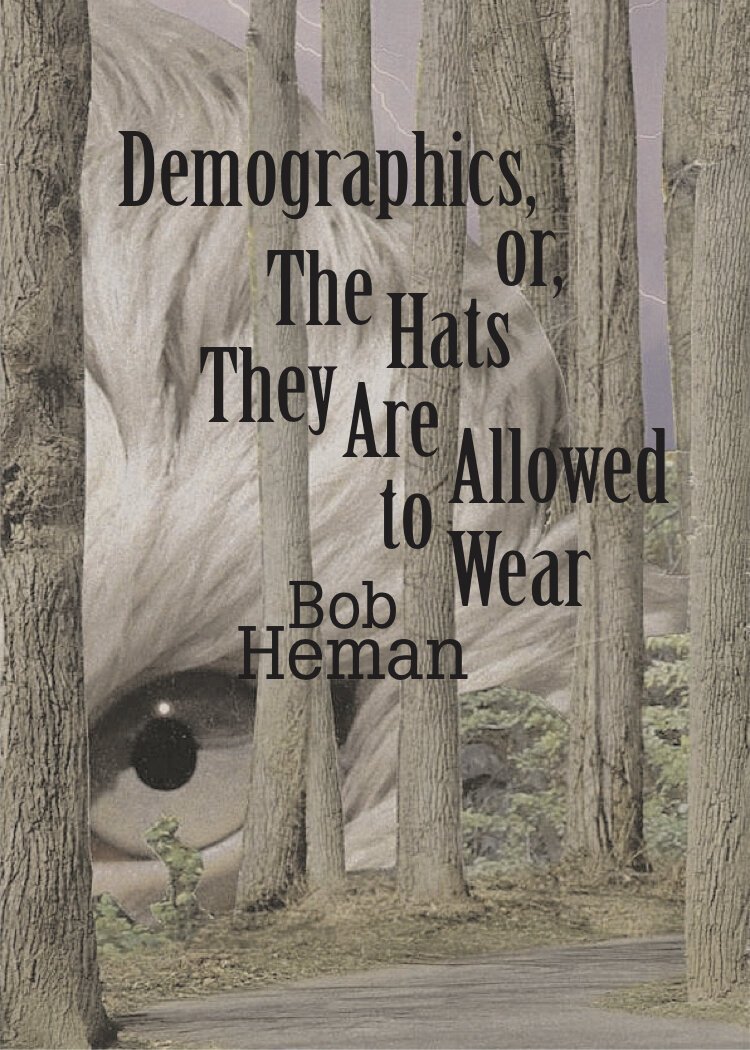
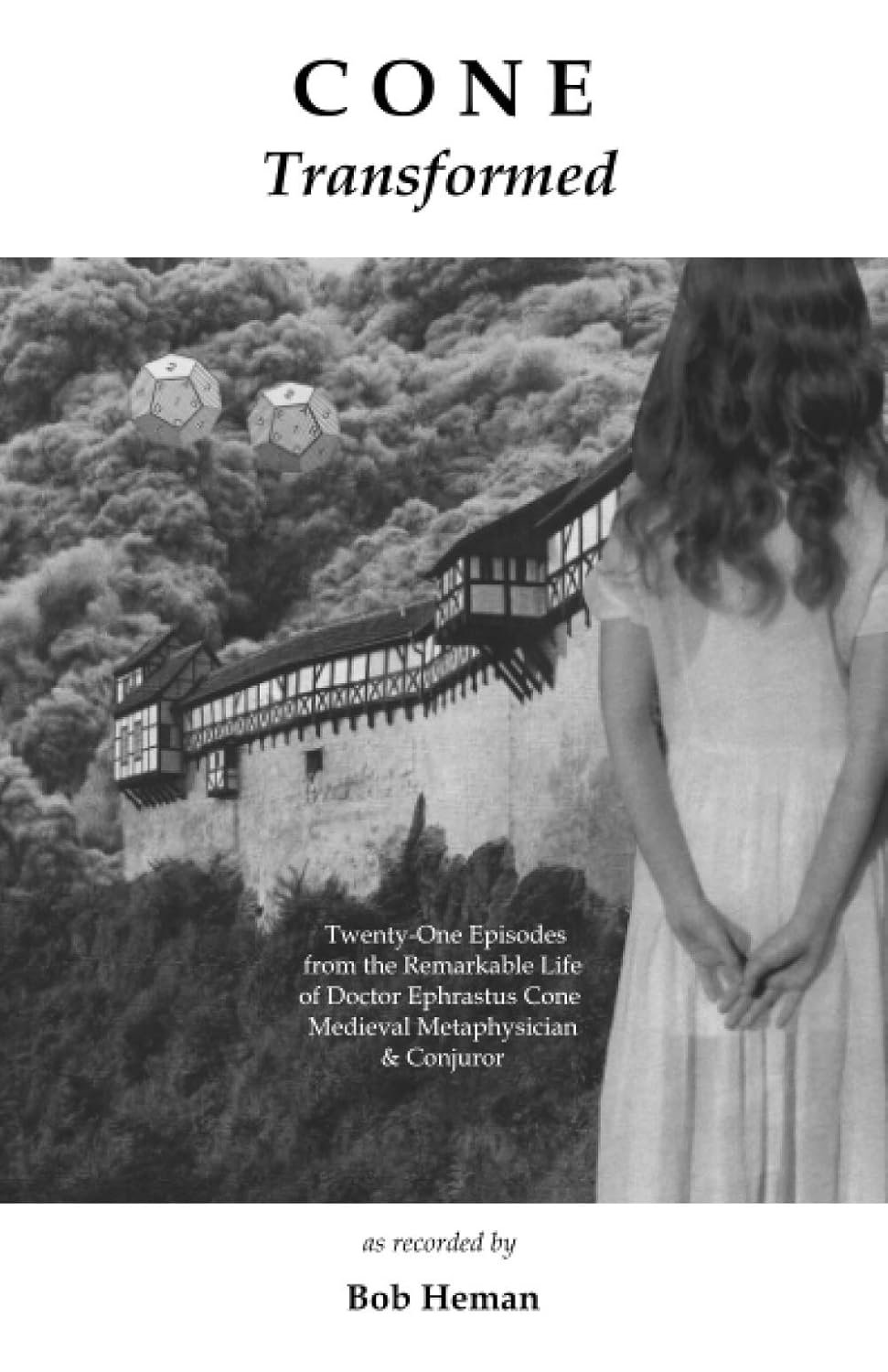
[1] In 2020, my friend the poet C.T. Salazar shared a poem of Heman’s from an issue of NOON: journal of the short poem and I was floored. Upon looking for more of Heman’s work online, I found three free PDFs of prose poems, another seventeen prose poems all titled ‘Information’, and another collection centering around approaching the dictionary at random. Bob Heman has been editing and writing in a unique DIY fashion since the 1970s. In 2020, I wrote in a description, “I picture him walking down the street, handing pamphlets of magic to strangers.”
[2] For nearly 30 years, Bob Heman has been writing prose poems all titled 'Information'. He's amassed thousands of them. In his newest collection, Washing the Wings of the Angels, Heman has gathered 79 of these tiny and surrealist prose poems, the end result feeling like a stack of strange observations, woodland vignettes, dreamspeak postcards, absurdist snapshots. Heman's one of my very favorite prose poets and this collection further justifies that statement.
[3] In December of 2020, I sent Heman an email asking about an interview, then another in December of 2021. In August 2022, we finally began conversing. Now, two and a half years later, after many conversations online and after tuning in to a handful of his Zoom readings, with a new book out and another on the way, our interview is ready. We talk about his early days of prose poems, his new collection, a forthcoming collection, collage, NPR, and much more.
To begin, you've been writing prose poems since (at least) the '70s and I'd love to go back in time and begin with the early days of your writing. When did you begin to write poems? When did the prose poem become your preferred vessel?
I've been writing prose poems regularly since the Fall of 1973, but they are not the only thing I write. Since college I have also focused on very small poems, perhaps best exemplified by the pieces in my small collection [26 Structures]. I first started writing regularly in high school when I was mostly writing science fiction stories. It wasn't until college, influenced by my involvement with Counterweight Quarterly, the college literary magazine, that I started writing poetry.
I'm digging through the depths of your Clown War archive, which (correct me if I'm wrong) ran from 1972 to 2000. In nearly every issue (if not every single issue), you have a poem or a prose poem or a drawing or a collage. In one, you simply have the phrase "strange ash." I love this series and this archive. Can you talk a bit about its inception and what kept it going all those years?
Actually Clown War continued (as CLWN WR) until 2015 (and issue #50), with the last few issues appearing fairly sporadically. During the first decade of this century I also started a series of CLWN WR readings, which, along with poets and some fiction writers, also featured singers and dancers and even a filmmaker. The first two issues of Clown War were co-edited by Stephen Fairhurst, who was also involved with Counterweight Quarterly. and who left during the compiling of the third issue to finish working on his thesis.
Throughout the many decades of Clown War, what was the submission process like? Was it always close friends and poet friends and invites/solicitations, or did you have strangers sending in pieces for consideration as well?
The first issue contained writers I encountered in workshops and readings, as well as some I knew from Counterweight Quarterly, the literary magazine of the Polytechnic Institute of Brooklyn, which I attended from 1965 until 1967. With the second issue I started soliciting poetry from writers whose work I saw in magazines and liked (and whose addresses I could find) including Albert Goldbarth, Russell Edson, Marge Piercy, Danny Rendleman, Richard Kostelanetz, John Oliver Simon, and Lyn Lishin. For later issues I started soliciting work from some other poets I was aware of (including a few connected with the group now known as the “Language” poets), including Ron Silliman and Ray DiPalma and Bruce Andrews and Lyn Hejinian and Rosmarie and Keith Waldrop and Michael Lally and others. I also started listing Clown War in the annual Dustbooks Directory of Literary Magazines, and started setting up at the annual NYC small press bookfair. As a result I started receiving more unsolited manuscripts as well.
Were you handling 100% of the curation and the ordering and the printing of copies? Was this all done from your home? I live in Chicago and the DIY 'zine' scene is very strong here, and Clown War has that feel. It feels very homegrown and authentic and whatever the opposite of corporate is.
I had previously worked with offset printers, and in 1974 I started working at The Print Center in Brooklyn Heights, a grant-funded not-for-profit facility created to print literary and art publications at cost. I was the offset stripper/cameraman there, and later also advised editors and publishers bringing in jobs about the possibilities of printing offset. This was at a time when few magazines had the “slick” professional look of many of those published today. Instead they were basically the next step up from the “bare-bones” mimeo'd magazines which were often the main outlet for writers working outside mainstream traditional academia. Once I started working at The Print Center I started doing everything on Clown War myself. Besides the editing, I also did the typesetting, camerawork, stripping, platemaking and binding, and for some issues actually ran the press and printed them myself. This changed with issue #13, after I had left The Print Center. Working there had been a great experience for me since basically everyone who walked in the door edited a small literary magazine or press.
Along the way, have you ever tiptoed outside of prose poetry, either with the novel form, or the short story, or the essay?
As I mentioned earlier, I have also written small poems for most of my time as a writer, as well as sometimes creating drawing poems and 3-dimensional literary objects.
I know you are also a prolific and surrealist collage artist. Did this arrive later in your life or around the same time as you began writing poems?
I first did collages during 1967-68, but then didn't do any again for decades. But in the meantime I did start doing ink (rapidograph) drawings in the 1970s which appeared in Clown War and other magazines as well, and were later included in a small two-man show in The Brooklyn Museum and as well as in a couple of gallery group shows. I didn't really start doing b/w collages again until the 1990s, and didn't do any color collages again until 2008. In addition, in the early 1970s, I had also started doing my first “cut-outs” (participatory cut-out multiples on paper) which were also included in The Brooklyn Museum show, and again in a one-man retrospective of the cut-outs at BACA's Downtown Cultural Center.
Are there other artistic disciplines you've practiced, like erasure or centos or ekphrastic writing?
I don't consider these “other artistic disciplines.” They're just another facet of poetry. For instance ekphrastic poems were written by the Pre-Raphaelites as part of their standard practice. In the 1970s I did do some experimental text works that applied different strictures to existing texts in the manner of Oulipo. I also did some works in which I chose specific words on a printed prose page that seemed to form connections with each other (in the manner of Tom Phillips' A Humument), a practice that decades later I suppose might be considered “erasures,” but at the time were just an individual experimental exploration and not the standard workshop tool “erasures” have since become.
I recall reading in a past interview that your Information series was largely written while commuting, often on the train, often on the go. Are these pieces written in the 'between' times of life?
The most important part of those days was when I was writing on the trains, going to a job that had little connection with my “real” life. My job was just what I needed to do in order to sustain myself.
Can you pinpoint when the 'Information' series began?
The “information” pieces are basically all the (non-series) prose poems I've produced since I stopped writing primarily on the typewriter at work in the mid-1990s, and instead started writing mostly in small pocket notebooks (usually on the train or in the laundromat), a change of process dictated by a change of jobs. The poems in my “information” series continued the trail of prose poems included in my e-book, Demographics, or, the Hats They Are Allowed to Wear, published by Quale Press, which were mostly written on the typewriter.
What was the process like narrowing them down for a collection? How did you pick and choose? I imagine you have thousands of them at this point.
In collecting the “information” pieces, I limited myself to considering only those works that had been previously published. For Washing the Wings of the Angels I decided to include only works that had been written between 2014 and 2022. But still there were a lot to choose from. Once I finally made a selection and sent sent the completed manuscript to the publisher, I consciously chose not change what was included (except for adding a single poem at the very end). The choice of poems could have been tinkered with indefinitely, but I decided that rather than making the project more difficult for the publisher with late changes, that I would not change the original selection. It is quite probable that if I were making the selection of poems today for Washing the Wings, that the poems I'd include would be somewhat different. For that reason I expect that there will eventually be another collection of “information” pieces, containing recent works written since 2022, as well as some of those written since 2014 which were not included in Washing the Wings. Meanwhile a selection of my early “information” pieces, written between 1996 and 2014, called What Needs to Be Found, is scheduled to be published by MadHat Press in May 2025.
Along with Information, do you have any other sequences or concepts in the works? I'm thinking of Cone Investigates and The House of Grand Farewells as both being rather conceptual in style, often with a constraint or a rhythmic repetition.
My other book-length series is The Serpent Variations, a group of prose poems that bounce off of the legends of the serpent and the garden [i.e. the Garden of Eden] in often irreverent ways. They were started as “information” pieces, but then became a separate group when for two months I decided to write nothing else. Some have been published in chapbooks, but the series as a whole hasn't yet found a publisher.
Outside of your own work, what are some recent reads that you have enjoyed?
The most interesting things for me to read are articles about science and early civilizations, as well as articles I find about film, and about the Surrealists and other experimental artists and writers.
I'll ask the same question, but in regards to recent movies and/or music. What are some films or albums that you'd recommend to a stranger?
For music, what I'd recommend is not a specific album but rather a show, New Sounds on National Public Radio. In NYC it's broadcast on WNYC-FM at 11 PM each night. They play all kinds of mostly non-mainstream music including experimental work and world music, almost all of it unlikely to be heard on any commercial radio station.
For movies I tend to like films of the imagination such as science fiction and horror and fantasy, as well as experimental and foreign films, and film noir, and documentaries about science and early history.
If you can, provide a photo of your workspace or describe with words. What are some essentials while you create?
Since these days I tend to write in front of the tv or computer on ruled pads, there's really nothing to show. I write whatever comes to mind, influenced perhaps by what I'm watching, but I never write specifically about what I'm watching (i.e. they're not ekphrastic poems). Instead what I'm viewing is merely a starting point for wherever my mind chooses to wander.
For this ongoing author interview series, I'm asking for everyone to present a writing prompt. It can be as abstract or as concrete as you choose.
I generally don't like the whole idea of artificial prompts. There's no need for them. Just walking down the street, or even from one room into another, anything can prompt the imagination to go someplace where it hasn't been before. You just have to keep your eyes and mind open.
In closing, do you have any advice for early writers? Or rather, what's something that keeps you going to the page?
As a poet it's best not to allow the idea of having a “writer's block” to exist for you. It's an artificial idea, created only if you feel like you must force yourself to write even if the words aren't there, and that somehow you feel like it's a bad thing if you don't write. If you're truly a writer you'll write no matter what. It will just happen. And if you don't write every day you can't worry about it, it will come when it does. Yes, it can be useful to establish a discipline of writing every day, but only if you're not pondering endlessly over each word or line or paragraph you write, but instead are just allowing whatever wants to be written to flow out. You can't worry if it's good or not. You can't dwell endlessly on what was written. Instead it's probably better not to look at it again for days or weeks or even months, allowing time to add some perspective so that your words will seem new to you the next time you look at them.
What you find then might sometimes surprise you.
Any final thoughts / closing wisdom? Thank you again for taking the time, Bob!
Don't be afraid of your imagination. Allow it to go wherever it wants and relish whatever you find there.

